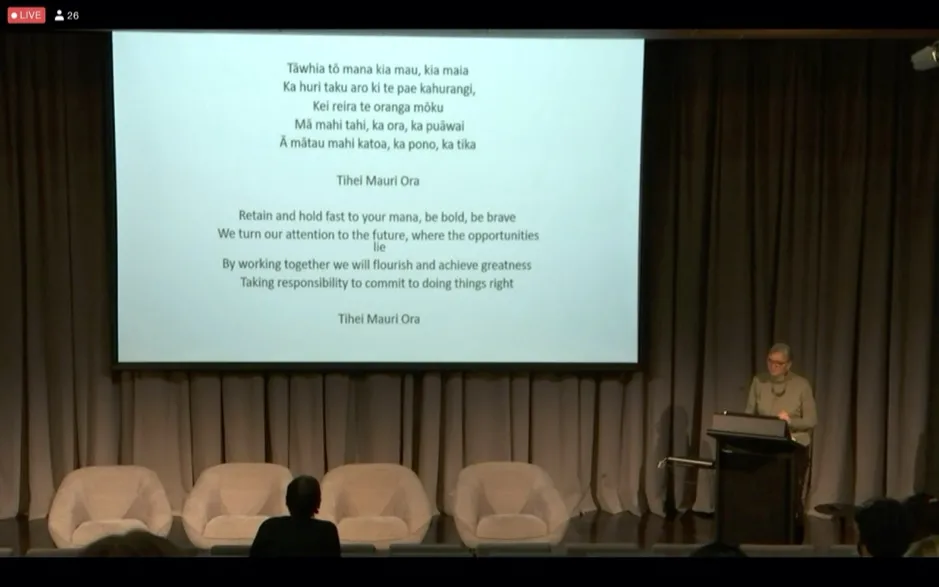Final Remarks and Closing Ceremony - blog two
Submitted by sharragrow on 24 Sep 2022

Annabelle Williams
Well we’re coming towards the end of this year’s Congress and President of the IIC, Julian Bickersteth gave a wonderful close to the 2022 Wellington Congress. He reflected on the professional and enlightening presentations and the connections made throughout the week and promised us further successes and excitement for what lies ahead.
A huge congratulations to Lima, Peru, who will host the 2024 Congress! It is the first time an IIC Congress will be held in South America and the announcement was met with excitement, with audience members already planning South America into their 2024 calendars. Peru was selected for the growing connections and new and expanding groups of IIC Fellows, who are located in nearby countries. Additionally it is a strong support towards IIC’s commitment to Congress becoming carbon-neutral that 60% of Peru’s energy is hydro-electric.
Julian highlighted the IIC’s pride in its unique model compared to other conservation conferences, with a particularly plenary nature, “focusing not just on the how, but why we conserve things”. The Congress presented technical papers engaging with specific practices, education systems, management and leadership in conservation, with an equal reflection of the broader cultural context through which conservation operates. It was pertinent that this year’s Congress reflected the Māori worldview, in which the spirit of not only objects but also people is respected, and the two are inextricably connected.
IIC has continued to embrace views and Fellows from outside the Euro-Anglo-centric view, and illuminate their work across the globe, building a diverse, accessible and truly global organisation in conservation. However, they admit that mistakes have been made at this recent Congress. The Session on Repatriation and Decolonisation was ill-received by audience members, with the IIC acknowledging this response and announcing they will “take on board the real learning from that feedback” in moving towards Lima 2024. This transparency and desire to improve for future Congresses was positive and refreshing as decolonising museums and galleries has become a significant discussion point in recent years. We as conservators need to navigate our role in re-assessing our custodianship of objects, and enabling community-driven restoration of traditional ownership and practices.
The hybrid conference model grew out of the particularly trying times of 2020 and the hugely successful 2020 Edinburgh Congress, held entirely online. This year, the Congress welcomed some 2000 registrants from across the globe, both online and in-person, and the whole IIC team and sponsors involved in arranging such smooth operation were celebrated in the Closing Ceremony. A thank you was extended to all the DEVS both in person and online who efficiently facilitated these sessions. Finally, all presenters, those local to Aotearoa (New Zealand), those who travelled internationally or were awake at all hours of the night to be involved in live Q&A sessions were sincerely thanked for their contributions and the enriching discussions which stemmed from these sessions.
Finally, Vicki-Anne Heikell gave a closing karakia, a Māori tradition which aims to transfer the audience and presenters from the space and time of the conference to return us to our everyday lives. She united all members to speak the karakia together and I encourage our online readers to do the same:
Tāwhia tо̄ mana kia mau, kia maia
Ka huri taku aro kit e pae kahurangi,
Kei reira te orange mо̄ku
Mā mahi tahi, ka ora, ka puāwai
Ā mātau mahi katoa, ka pono, ka tika
Tihei Mauri Ora
Retain and hold fast to your mana, be bold, be brave
We turn out attention to the future, where the opportunities lie
By working together we will flourish and achieve greatness
Taking responsibility to commit to doing things right
AUTHOR BYLINE
By Annabelle Williams
Collections Manager, Benalla Art Gallery